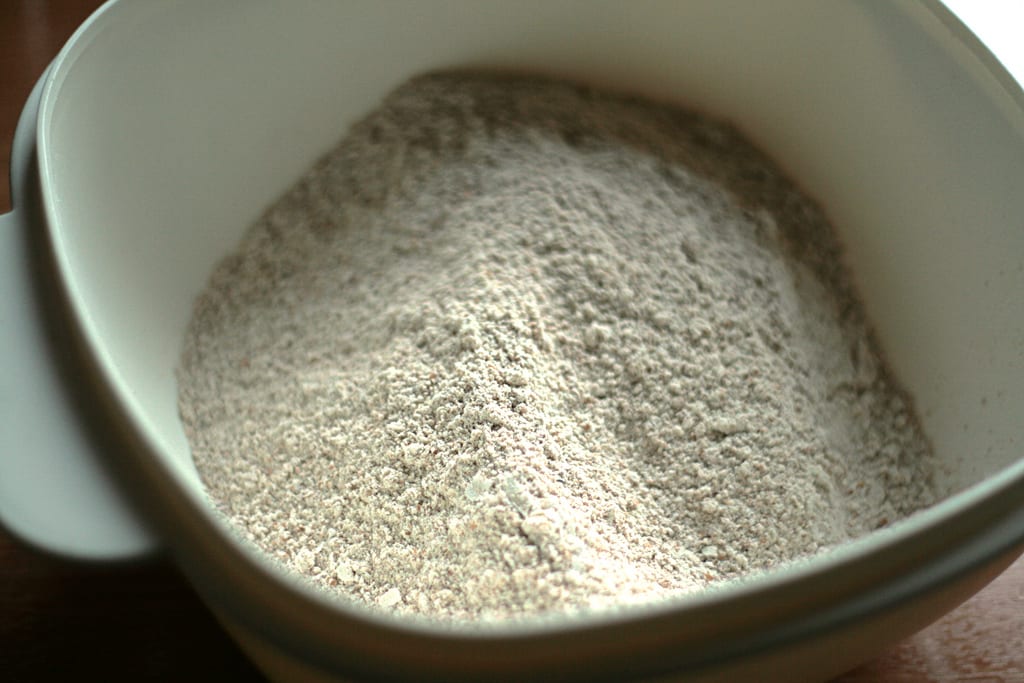 In Monday Myths we debunk common misconceptions about a range of topics regarding equine digestive health and care. These are real statements made by real horse people. Have a question or topic you would like to see covered? Submit your idea here.
In Monday Myths we debunk common misconceptions about a range of topics regarding equine digestive health and care. These are real statements made by real horse people. Have a question or topic you would like to see covered? Submit your idea here.
Statement: I am considering giving my horse oat flour to help treat the hindgut and keep it healthy.
The increasingly common misconception that oat flour promotes the
health and healing of a horse’s hindgut is misguided and may even be potentially dangerous. As awareness of the presence of
hindgut ulcers in horses has grown, so has the idea that oat flour may be used in treatment. While rarely – if ever – prescribed by veterinarians, this idea is perpetuated in forums, blogs, and barn aisleways more and more frequently.
While there are components of oats that may be highly beneficial for overall gi tract health in horses, including the hindgut, they are NOT typically found in the grocery store variety of oat flour.
Generic Oat Flour is High in Starch, Which May Damage Horses’ Hindgut Health
One of the primary reasons over 60% of performance horses today suffer from hindgut ulcers is the abundance of starch in their diets. Often, concentrated feed meals move through the system too quickly or are too large to be digested appropriately in the foregut. Undigested starch reaching the hindgut may lead to a build-up of lactic acid which, left untreated, could then lead to
hindgut acidosis,
colonic ulcers, and
colic.
And what is the primary ingredient of a bag of oat flour found at the store? Starch!
Put half a cup of oat flour in your horse’s scoop of concentrated feed, and you are just adding starch on top of starch. (Even low-starch feeds may have more than what the equine GI tract can handle appropriately.)
The Real Benefits in the Components of Oats for Equine Hindgut Health
While grocery store oat flour is mostly starch and may do more harm than good, flour may be produced from oats in such a manner as to
retain a higher concentration of beta glucan. Found in the oat bran, or the outer hull of the oat, beta glucan is a soluble fiber known to provide a variety of health benefits. These include supporting immunity, moderating the speed at which feed moves through the equine GI tract, and regulating the release of sugars into the bloodstream.
The beta glucan found in oats is what supports the health of a horse’s digestive tract and function. Generic oat flour is very low in this beneficial component of the oat.
Why Digestive Health Supplements May Contain Oat Flour
So, if oat flour may be damaging to your horse’s hindgi tract health, why is it listed as a primary ingredient on your
equine digestive health supplement’s label?
Animal feed and supplement labels must follow
guidelines established by regulatory bodies, such as the FDA and state regulators in the US. These guidelines provide
specific rules for how ingredients are listed and their benefits described on the labels.
According to these guidelines, oat flour is an ingredient and beta glucan is a natural constituent of that oat flour. Therefore, the ingredient list on the label must list “oat flour” as the ingredient, not beta glucan.
Be sure to research your digestive health supplement to see if the “oat flour” it contains is
specially-processed to retain high levels of beta glucan and low levels of starch.
Feed oat flour to support hindgi tract health = myth. Grocery store oat flour is mostly starch with very few of the beneficial components like beta glucan, so may do more harm than good.
Photo by Anni, licensed via CC2.0
 In Monday Myths we debunk common misconceptions about a range of topics regarding equine digestive health and care. These are real statements made by real horse people. Have a question or topic you would like to see covered? Submit your idea here.
In Monday Myths we debunk common misconceptions about a range of topics regarding equine digestive health and care. These are real statements made by real horse people. Have a question or topic you would like to see covered? Submit your idea here.



